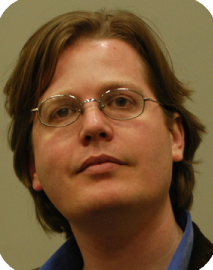Nordic Digital Culture Network Launched
 I’m pleased to announce the launch of the Nordic Digital Culture Network, a Nordplus Higher Education network which we have been working to develop for the past year. Linking together digital culture programs from the Nordic and Baltic region, the Digital Culture Network facilitates curriculum development, student and faculty exchanges, and innovative teaching ideas and best practices. Students studying in the programs in the network will benefit from increased student and teacher mobility and enhanced opportunities for study. All the programs in the network — the University of Bergen in Norway, Blekinge Institute of Technology in Sweden, IT University of Copenhagen in Denmark, and the University of Jyväskylä in Finland — are leaders in the field of digital culture in their respective countries. Network participants will facilitate student and faculty exchange ranging from express visits to semester or yearlong exchanges, joint programs and master’s degrees. We are launching network activities this activities this fall and spring with faculty exchanges between the institutions, and will add programs, such as student exchanges and a summer school for digital culture, in coming years. I also encourage students from other countries in Europe, North America, and elsewhere to explore the exchange and M.A. program opportunities detailed on the site. For instance, both Bergen and Jyväskylä welcome applications to our M.A. programs in digital culture from well qualified international students. While international students are responsible for their own living expenses, they are not required to pay tuition.
I’m pleased to announce the launch of the Nordic Digital Culture Network, a Nordplus Higher Education network which we have been working to develop for the past year. Linking together digital culture programs from the Nordic and Baltic region, the Digital Culture Network facilitates curriculum development, student and faculty exchanges, and innovative teaching ideas and best practices. Students studying in the programs in the network will benefit from increased student and teacher mobility and enhanced opportunities for study. All the programs in the network — the University of Bergen in Norway, Blekinge Institute of Technology in Sweden, IT University of Copenhagen in Denmark, and the University of Jyväskylä in Finland — are leaders in the field of digital culture in their respective countries. Network participants will facilitate student and faculty exchange ranging from express visits to semester or yearlong exchanges, joint programs and master’s degrees. We are launching network activities this activities this fall and spring with faculty exchanges between the institutions, and will add programs, such as student exchanges and a summer school for digital culture, in coming years. I also encourage students from other countries in Europe, North America, and elsewhere to explore the exchange and M.A. program opportunities detailed on the site. For instance, both Bergen and Jyväskylä welcome applications to our M.A. programs in digital culture from well qualified international students. While international students are responsible for their own living expenses, they are not required to pay tuition.










 Michael Mateas, Noah Wardrip Fruin, and Mary Flanagan, half of the art-theory collaboration Grand Text Auto, gathered at the
Michael Mateas, Noah Wardrip Fruin, and Mary Flanagan, half of the art-theory collaboration Grand Text Auto, gathered at the